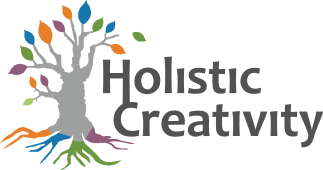
Creativity is a Core Skill
June 8, 2022 | Categories: Articles
For contemporary workers, creative literacy is now considered to be an essential core competency, as vital as reading, writing, math, or other basics. According to the Framework for 21st Century Learning, core competencies for the 21st Century include Critical Thinking, Communication, Collaboration, and Creativity. Education at all levels, in their view, should prepare students to be flexible, adaptable, and innovative.
Creativity is now considered the third-most important skill that workers need for employment. Not only is Creativity useful for enhanced performance on the job, it may also be personally necessary in order to adapt to changing expectations for employment. For example, adults are now very likely to switch jobs, or even careers, multiple times over decades of employment history. Pre-defined or one-track careers are less likely even with companies that historically have had long-term employment practices, or even in creative fields that historically have relied on specialized skills —such as graphic designer, writer, fine artist, musician, and others.
In order to fulfill future demands for Innovation and Creativity, workers will need to be reskilled and retrained. As robotics, for example, changes the very nature of the workplace, we will require a corresponding change in our approach to education. In addition to the appropriate, hard-skill knowledge of a specialist, workers will also need to utilize the wide-ranging perspective and soft-skills of a ‘generalist.’ For example, they will need the ability to be systemic thinkers, to adapt to flexible conditions, and to work effectively as members of project-based teams or networks. As investments in on-job training decline, workers will need the ability to be self-directed and self-promoting, whether they seek work in a corporate environment, become entrepreneurs, or are self-employed as freelance workers.
According to a World Economic Forum study published in 2016, nearly half of all jobs are now at risk of changing to a model called ‘flexible work.’ This model is increasingly replacing the stereotypes of past employment with new self-directed paths. Opportunities for workers may come in the form of multiple employers, several different projects, and many streams of income, all at the same time. Consequently, a personal solution for a dependable and sustainable career will have to be unique, self-defined, and flexible. We can clearly see evidence of this since the start of the Covid Pandemic.
